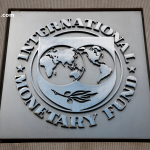Kano State has witnessed an alarming surge in economic challenges, with many parents reportedly selling their children’s school uniforms in a desperate bid to survive amidst worsening financial pressures. This revelation comes from the state’s Commissioner for Education, who highlighted the troubling trend and called for urgent intervention to address the deepening crisis.
The Commissioner’s statement, made during a recent press briefing, described the situation as “heartbreaking” and warned that it signals a growing economic and social crisis affecting families across the state. As inflation continues to rise and unemployment rates soar, many families in Kano are finding it increasingly difficult to meet basic needs, including providing education for their children.
The Strain of Economic Hardship
The economic crisis, which has hit the northwestern state particularly hard, has left many parents with no choice but to make drastic decisions. According to the Commissioner for Education, Alhaji Bello Muhammad, the financial strain has led some parents to sell off their children’s school uniforms, which are vital for attending school, just to secure food, pay for rent, or cover other pressing expenses.
“We are facing a very difficult situation here in Kano. Parents are now turning to desperate measures. In some cases, they are selling their children’s school uniforms to survive. This is an indication of how grave the economic hardship has become,” said Alhaji Bello Muhammad.
He explained that the rising cost of living, coupled with the economic impact of the COVID-19 pandemic and disruptions in global markets, has forced many families into poverty. The Commissioner noted that basic items such as food, clothing, and healthcare have become out of reach for a growing number of households, leaving parents with few options but to sacrifice their children’s education to keep their families afloat.
Impact on Education
The sale of school uniforms is just one of many challenges facing students in Kano. The pressure to provide for families has led some children to drop out of school altogether, as their parents can no longer afford tuition fees, books, or even the cost of transport.
Some students are reported to be attending classes in tattered clothing, or not attending school at all, as parents prioritize survival over education. These developments are threatening to reverse the progress made in recent years to improve education access in the state.
According to a local teacher, who spoke on condition of anonymity, the trend of selling school uniforms is not isolated to a few families but has become increasingly widespread in various communities within Kano.
“We’ve noticed that more and more children are coming to school without proper uniforms. Some have had to borrow uniforms from relatives or friends, while others simply cannot attend school. This is directly affecting their learning experience,” said the teacher. “The education system is under strain, and we are seeing the consequences of an economy in decline.”
Community Concerns and Reactions
Community leaders and advocacy groups have also expressed deep concern over the situation. Local organizations working on child welfare and education have called on the state and federal governments to take immediate action to alleviate the burden on families and prevent further damage to children’s education.
Zainab Adamu, a social worker with the Kano Education and Welfare Initiative, pointed out that the sale of school uniforms reflects a broader issue of income inequality and the lack of social safety nets in the region.
“It is heart-wrenching to see parents put their children’s future at risk because of poverty. In many cases, selling the uniform is not a matter of choice; it’s a matter of survival. We need urgent intervention to help these families,” Adamu said.
Zainab also called for a more robust education financing model that would make schooling more affordable for all children, regardless of their parents’ financial situation. She emphasized the importance of providing direct support to struggling families, especially in times of crisis.
Government’s Response
The Kano State government has acknowledged the severity of the situation and vowed to implement measures aimed at reducing the financial burden on parents. Governor Abdullahi Umar Ganduje’s administration has promised to increase funding for education and offer more scholarships to underprivileged students. In addition, the government has pledged to provide school uniforms and other essential items to the most vulnerable families.
“We are aware of the difficulties parents are facing, and we are doing everything within our capacity to ensure that education remains accessible for all children,” said Malam Mohammad Rabi’u, the Special Adviser to the Governor on Education. “We are increasing efforts to provide free school uniforms, textbooks, and scholarships to reduce the financial pressure on families.”
However, critics have pointed out that the state’s response may not be sufficient to address the underlying economic challenges. Many believe that a more comprehensive approach is needed to address the root causes of poverty, such as job creation, affordable healthcare, and support for small businesses.
A Call for Long-Term Solutions
While the immediate focus remains on providing relief to struggling families, there is a growing recognition that lasting solutions will require a holistic approach to poverty alleviation. Experts argue that improving economic conditions in Kano and across northern Nigeria is essential to breaking the cycle of poverty that is forcing parents to make such painful decisions.
For now, families in Kano continue to grapple with the harsh realities of economic hardship, with education hanging in the balance. As the situation unfolds, there is hope that stronger support from both the government and humanitarian organizations will ease the pressure on families and ensure that children can continue their education without the burden of financial hardship.











